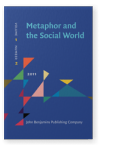Vol. 1:2 (2011) ► pp.154–173
Motivated word meanings and vocabulary learning
The polysemy of hand in the English for Young Learners classroom
The introduction of English as a foreign language in many countries at ever younger ages poses new challenges for teachers, material designers and researchers in terms of finding out and dealing with the needs of such young children when learning a foreign language. This paper focuses on vocabulary learning at early ages, arguing for the inclusion of figurative language in young learners’ English input for two main reasons: firstly, some figurative uses are very frequent in general language and suitable for young learners’ communicative needs and, secondly, research (Piquer-Píriz, 2005) has shown that children as young as 5 years old are able to work out figurative extensions of words whose literal meanings they know, through associative (metonymic) and analogical (metaphoric) reasoning. The specific case of hand is explored, drawing on some of the findings mentioned above, to discuss the potential of cognitive linguistic-inspired approaches in the young learner classroom.
